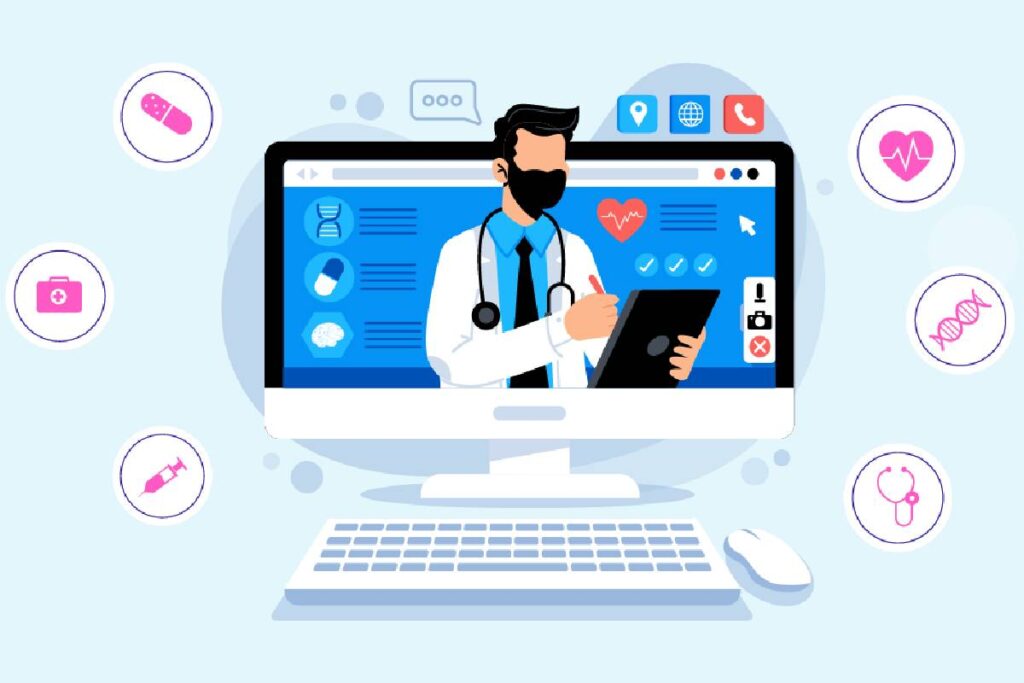In the fast-changing world of healthcare, efficiency, accuracy, and patient satisfaction are more important than ever. Hospitals are expected to handle thousands of patients, maintain detailed medical records, and ensure smooth coordination between departments. Traditional methods can no longer meet these expectations. That’s where Hospital Management Software comes in — an advanced digital system designed to streamline hospital operations, improve patient care, and enhance overall efficiency.
What Is Hospital Management Software?
Hospital Management Software (HMS) is a digital solution that automates and integrates all aspects of hospital administration. It helps manage patient records, billing, staff scheduling, inventory, and more — all from a single platform. The main goal of HMS is to simplify operations, reduce manual errors, and improve communication among healthcare professionals.
Whether it’s a small clinic or a large multi-specialty hospital, HMS adapts to every facility’s needs. By digitizing and automating core processes, it allows staff to focus more on patient care rather than paperwork.
Key Features of Hospital Management Software
1. Centralized Patient Management
HMS securely stores patient information, including personal details, medical history, test results, and prescriptions. Authorized staff can access these records instantly, ensuring faster and more accurate diagnosis and treatment.
2. Appointment Scheduling and Tracking
With built-in scheduling tools, hospitals can manage doctor appointments efficiently. Patients receive automated reminders, reducing missed visits and improving time management for both doctors and patients.
3. Billing and Financial Management
Manual billing can be time-consuming and prone to errors. Hospital Management Software automates the billing process — from service charges to insurance claims — ensuring accuracy and transparency in all financial transactions.
4. Inventory and Supply Control
Hospitals handle large inventories of medicines and equipment. HMS helps monitor stock levels, track expiry dates, and send alerts when supplies need replenishment, preventing shortages or overstocking.
5. Staff and Payroll Management
The system maintains staff attendance, schedules, and payroll details. It ensures that HR operations are handled efficiently while maintaining compliance with healthcare labor standards.
6. Data Security and Compliance
Patient data is highly confidential. HMS ensures security with role-based access, encryption, and regular backups, meeting healthcare data privacy regulations.
7. Reporting and Analytics
Hospital Management Software generates detailed reports on performance, revenue, and patient care quality. Data analytics help administrators make informed decisions for continuous improvement.
Benefits of Using Hospital Management Software
Improved Efficiency
Automating repetitive tasks saves time and reduces workload. Doctors, nurses, and administrative staff can complete tasks faster and more accurately.
Enhanced Patient Experience
HMS provides patients with a smoother journey — from booking appointments to accessing reports online. This results in better satisfaction and trust in the hospital.
Reduced Operational Costs
By cutting down on paperwork, errors, and redundant processes, hospitals save money in the long run. Digital systems also reduce the need for physical storage.
Better Decision-Making
Real-time data access allows management to monitor hospital performance and identify problem areas quickly. Strategic planning becomes more effective.
Stronger Data Security
Sensitive patient data remains safe and easily retrievable. HMS provides secure backups, reducing the risk of data loss or breaches.
Why Hospitals Need HMS in 2025
The year 2025 represents a new era of digital healthcare. Patients expect faster service, and regulations demand accurate record-keeping. Manual methods are no longer sustainable for growing healthcare facilities.
Hospital Management Software offers a complete solution that meets modern expectations. With AI integration, cloud storage, and automation features, it ensures hospitals can adapt to changing trends and deliver quality care efficiently.
Moreover, as telemedicine and remote care become more popular, HMS allows seamless integration between physical and digital healthcare services — giving hospitals a competitive advantage.
Choosing the Right Hospital Management Software
When selecting HMS for your hospital, focus on these factors:
- Ease of use: Staff should be able to use it without extensive training.
- Scalability: The software should grow with your hospital’s needs.
- Integration: It should connect easily with existing systems like lab or pharmacy management.
- Support and updates: Choose a vendor that provides regular updates and reliable customer support.
- Security: Ensure it complies with healthcare data protection standards.
The Future of Hospital Management Software
The future of HMS lies in automation, artificial intelligence, and predictive analytics. AI-powered systems can help predict patient needs, optimize resource allocation, and reduce administrative workload. Cloud technology ensures accessibility from any location while maintaining data security.
Hospitals that embrace these innovations will not only improve patient care but also position themselves as leaders in modern healthcare.
Conclusion
Hospital Management Software is no longer a luxury; it’s a necessity for modern healthcare. It simplifies daily operations, enhances patient experiences, and ensures efficient management across departments. In 2025 and beyond, hospitals that rely on advanced management systems will lead the way in delivering faster, smarter, and safer healthcare services.
By adopting HMS today, hospitals can build a foundation for sustainable growth, improved efficiency, and superior patient care — ensuring a healthier future for everyone.

